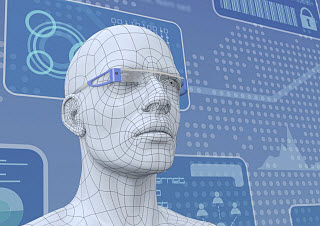BWild |
September 4, 2014
The mobile device maker from Taiwan could be working on a wearable device based on Android Wear.
Rumors have been flying about HTC and the possible release of a smartwatch based on the Android Wear platform from Google, which could be released as early as this month.
It has been heavily believed, for some time, that the company has been working on wearable technology.
Aside from the fact that it is now rumored that the smartwatch will be released before September is finished, it is also believed that the wearable technology device will be called the HTC CWZ. It is not known exactly when in September the device will actually hit the shelves, nor has it been officially confirmed that these wearables will be out this month, but the source (@upleaks) has been relatively accurate with this type of statement in the past.
The HTC smartwatch will be released in a number of countries and markets around the world.
 The technology news reports have suggested that the first to receive this wearable technology will include North America, Korea, Japan, Brazil, and several others. The device, itself, is something that the technology world has known about for most of this year, as Cher Wang, HTC chairperson, made the announcement back in February that the company was working on this gadget and that it would be available to buy in time for this year’s holiday shopping season.
The technology news reports have suggested that the first to receive this wearable technology will include North America, Korea, Japan, Brazil, and several others. The device, itself, is something that the technology world has known about for most of this year, as Cher Wang, HTC chairperson, made the announcement back in February that the company was working on this gadget and that it would be available to buy in time for this year’s holiday shopping season.
That said, Wang did not say exactly when it would become available, nor did she make any specific mention of the type of features that can be expected from this device. This has caused the rumor mill to continually swirl, as the unveiling of the Taiwanese wearables could occur at virtually any moment.
Technology news headlines of this nature thickened this summer when a smartwatch made a brief appearance in an official HTC video. That said, the company stated that the device that was spotted in the video was not an actual product planned for release. Previous reports have also suggested that the wearable technology device would be sold under the name One Wear and that it would launch late in August or early in September.
Patent pictures hint at a new design concept for the wearable tech.
Although not everyone is on board with Google Glass, one aspect regarding this wearable device on which most people agree is the fact that it lacks aesthetic appeal and does very little for a person’s looks, but this minor issue may be rectified down the road based on the latest speculations regarding a recent acquired patent.
The new design appears to be sleeker and thicker compared to the current eyewear.
Mitchell Heinrich, Google design and prototyping engineer involved with Project Glass, was granted US patent D710,928 S on August 12. The patent shows a Google Glass design that looks far more like thick framed normal eyeglasses compared to the relatively bulky projector that sits on the side of the current device.
Heinrich’s involvement in the project is described on his website as “Early stage mechanical architecture layout. Lead the consumer packaging development for the explorer release. Developed human factors numerical and physical models to fit Glass on as many people as possible. Co-developed the bone conduction audio system including component design and testing. Broad range of low and high fidelity prototype development.”
 The patent application reveals relatively normal looking spectacles with a thick frame that features a display apparatus, which is tucked on the inside and is attached to the right arm of the glasses near the hinge. This would not only hide the projector, but make the wearable display device potentially more comfortable for the user, as they could receive information projected from the apparatus on the lenses instead of it floating in front of their eyes. This could also mean better image quality. On the other hand, this new design could end up being more obstructive to the wearer’s vision.
The patent application reveals relatively normal looking spectacles with a thick frame that features a display apparatus, which is tucked on the inside and is attached to the right arm of the glasses near the hinge. This would not only hide the projector, but make the wearable display device potentially more comfortable for the user, as they could receive information projected from the apparatus on the lenses instead of it floating in front of their eyes. This could also mean better image quality. On the other hand, this new design could end up being more obstructive to the wearer’s vision.
The new design may make people even more suspicious of Google Glass users.
Despite being more appealing to look at, this new design could raise more concerns among non-Glass users who may argue that it will make it easier for wearers to film others without these people being aware that they are being captured on film or that Glass users may find it easier to engage in other illicit activity. For instance, the smartglasses have already been banned at certain movie theaters in the US to prevent the illegal filming of movies.
Nevertheless, at the moment, the patent doesn’t reveal enough about the next-gen Google Glass for anything official to be determined. However, what has been seen certainly does appear to be a notable evolution in the product.
 The technology news reports have suggested that the first to receive this wearable technology will include North America, Korea, Japan, Brazil, and several others. The device, itself, is something that the technology world has known about for most of this year, as Cher Wang, HTC chairperson, made the announcement back in February that the company was working on this gadget and that it would be available to buy in time for this year’s holiday shopping season.
The technology news reports have suggested that the first to receive this wearable technology will include North America, Korea, Japan, Brazil, and several others. The device, itself, is something that the technology world has known about for most of this year, as Cher Wang, HTC chairperson, made the announcement back in February that the company was working on this gadget and that it would be available to buy in time for this year’s holiday shopping season.
 The patent application reveals relatively normal looking spectacles with a thick frame that features a display apparatus, which is tucked on the inside and is attached to the right arm of the glasses near the hinge. This would not only hide the projector, but make the
The patent application reveals relatively normal looking spectacles with a thick frame that features a display apparatus, which is tucked on the inside and is attached to the right arm of the glasses near the hinge. This would not only hide the projector, but make the 